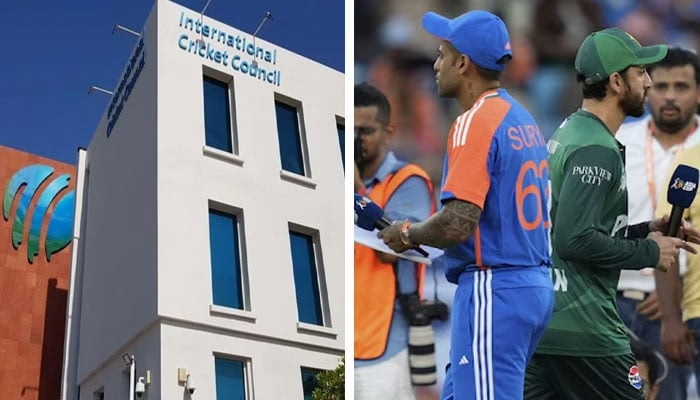A shocking human trafficking scam in Pakistan has come to light after Japanese authorities deported 22 men posing as football players. The incident has raised serious concerns about the evolving tactics of traffickers who continue to exploit vulnerable individuals in their pursuit of a better future abroad.
Human Trafficking Scam in Pakistan: The Football Team Deception
The human trafficking scam in Pakistan was orchestrated by Malik Waqas, a key suspect identified by the Federal Investigation Agency (FIA). Waqas registered a fake football club under the name “Golden Football Trial” and charged Rs4 million from each individual, promising them a chance to travel abroad legally.
To make the scheme convincing, the trafficker trained the men to act like professional footballers. He also prepared forged documents, including fake registrations from the Pakistan Football Federation and counterfeit approvals from the Ministry of Foreign Affairs. These fraudulent papers falsely stated that matches were scheduled in Japan.
The group traveled from Sialkot International Airport and initially reached Japan. However, upon inspection, Japanese authorities identified the documents as fake and deported all 22 men back to Pakistan.
How the Human Trafficking Scam in Pakistan Was Exposed
The human trafficking scam in Pakistan unraveled after the FIA launched an investigation. Waqas was arrested and confessed during interrogation that this was not his first attempt. He admitted to having sent 17 individuals to Japan in January 2024 using the same deceptive strategy.
According to the FIA, this highlights how traffickers are adopting new methods after authorities tightened scrutiny at land and sea borders. Instead of traditional illegal migration routes, they now exploit fake sports teams, business delegations, and cultural events as cover for smuggling operations.
Financial Exploitation in the Human Trafficking Scam in Pakistan
Each victim of the human trafficking scam in Pakistan reportedly paid Rs4 million to secure a place in the fake football team. This staggering figure reflects the level of desperation among individuals seeking to escape poverty, unemployment, and limited opportunities at home.
For traffickers, the business is lucrative. By deceiving 22 men, Waqas managed to collect nearly Rs88 million in total. His earlier batch of 17 individuals likely generated a similar amount, showing the immense profits that fuel this criminal enterprise.
The Human Cost of Human Trafficking Scam in Pakistan
While the men involved in this human trafficking scam in Pakistan were fortunate to be deported alive, many others attempting to migrate illegally are not so lucky. According to the International Organization for Migration (IOM), more than 6,000 migrants worldwide died in 2023 while trying to cross dangerous routes by sea or land.
For Pakistan, the tragedy of the Greece boat incident in June 2023, where hundreds of migrants lost their lives, remains a grim reminder of the risks. Human trafficking not only robs people of their money but also endangers their lives and dignity.
Government Crackdown on Human Trafficking Scam in Pakistan
The FIA has intensified its crackdown on such rackets after repeated incidents of fraudulent travel schemes. Authorities are also working closely with international partners to monitor and curb illegal migration.
Last month, the United Nations in Pakistan launched the United Nations Network on Migration (UNNM), a collaborative platform aimed at addressing human trafficking and migrant smuggling. The initiative aligns with the Global Compact for Safe, Orderly and Regular Migration (GCM) and Pakistan’s national efforts to strengthen migration governance.
This whole-of-government and whole-of-society approach is expected to make it more difficult for traffickers to operate undetected, while also creating safer alternatives for legal migration.
Why the Human Trafficking Scam in Pakistan Persists
Despite strict laws and international pressure, the human trafficking scam in Pakistan continues due to multiple factors:
- Economic hardships: High unemployment rates push many people to seek opportunities abroad.
- Lack of awareness: Many victims are unaware of the dangers and legal implications of illegal migration.
- Weak regulation: Loopholes in sports, business, and cultural event approvals create opportunities for traffickers.
- High profits: The enormous financial gains incentivize traffickers to innovate new scams.
The recent football team fraud highlights how deeply rooted the human trafficking scam in Pakistan has become. By exploiting people’s dreams of a better life, traffickers continue to use deceitful tactics that not only cause financial losses but also put human lives at risk.
As authorities tighten enforcement and international organizations step in with collaborative initiatives, Pakistan must strengthen its migration governance, raise public awareness, and close the loopholes that traffickers exploit. Only then can the country effectively combat the growing menace of human trafficking and protect its citizens from falling prey to such dangerous scams.



